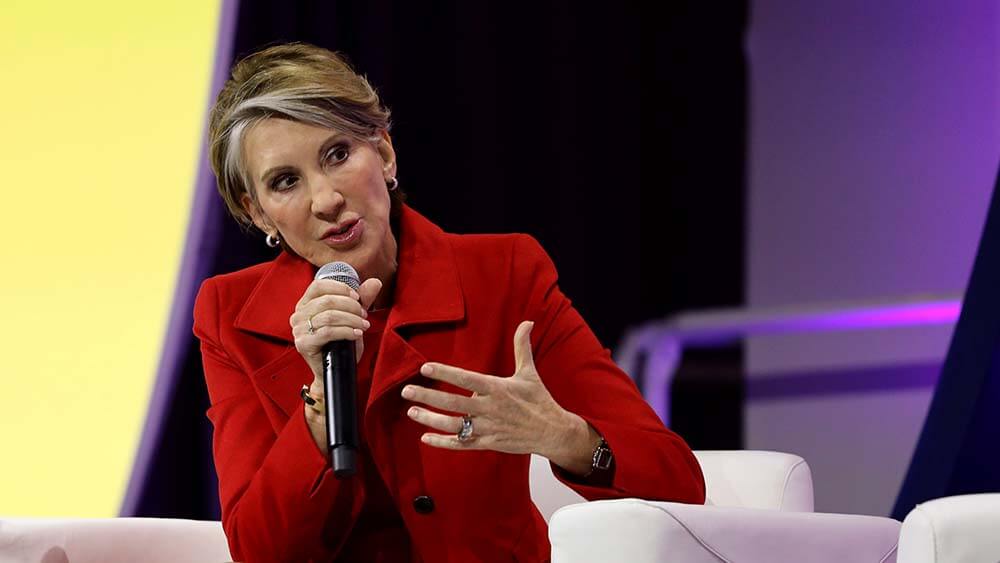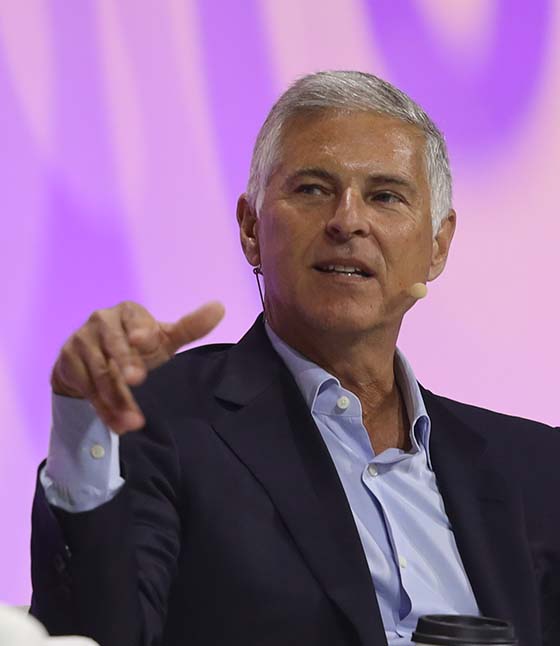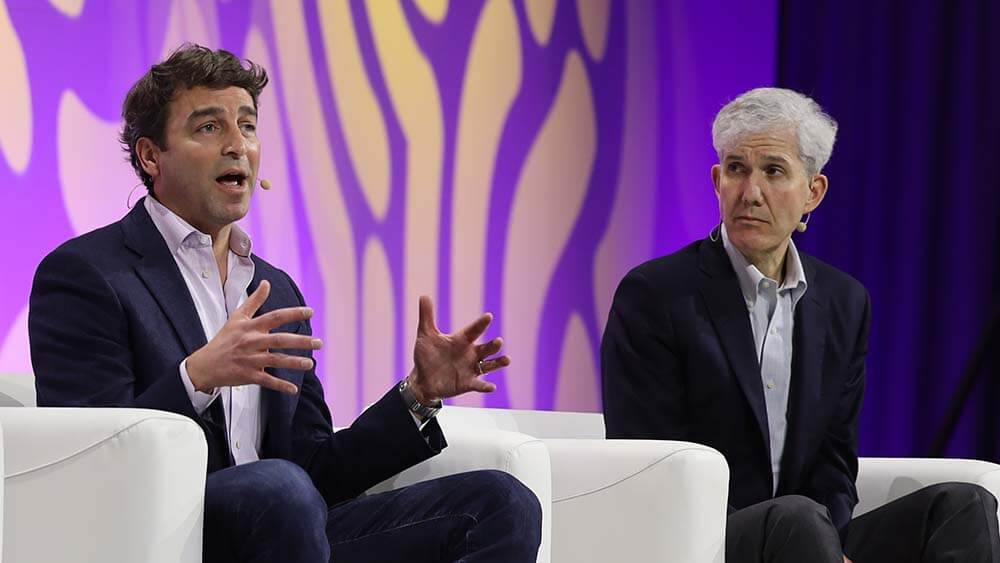
Carly Fiorina, Chairman of Carly Fiorina Enterprises, leads the discussion during Tuesday’s Main Stage panel presentation examine what the business events and hospitality industries can expect in 2023. (Whatever Media Group)
What trends do we need to pay attention to — what should all of us be thinking about strategically that impact our businesses, our clients, and our partners? Carly Fiorina, former CEO of Hewlett-Packard, put those questions to a panel of industry suppliers and an economic expert, during a Tuesday afternoon Main Stage presentation at CL23 in Columbus. The panel, which included Chris Nassetta, CEO of Hilton Worldwide; Ben Erwin, president and CEO of Encore; and Matthew Slaughter, a former member of the White House Council of Economic Advisers and dean of the Tuck School of Business at Dartmouth, sifted through the experience of last three years as they offered their best takes on the outlook for 2023, and tackled big issues including inflation and the future of the events industry.

Chris Nassetta, CEO of Hilton Worldwide
“I think people thought that everything was going to be widely different as a result of COVID,” but from his perspective as a hotel executive, Nassetta said, “the reality is there’s not that much that’s different” post-COVID. “Leisure business has come back, and is materially better than it was pre-COVID,” he said, and business travel “pretty much is back to the way it was.” In the meetings and events sector, “demand is off the charts.” The shifts that he does see, he said, are a result of shifting work patterns, including an increase in bleisure travel and increased business trips as a result of hybrid work arrangements.
Fiorina asked Slaughter, as the only economist on the panel, for his outlook on inflation. A confluence of factors has driven inflation up all around the world, including a dramatically snarled supply chain that came as a result of the pandemic shutdown, and the growth in demand that accompanied increased government spending and borrowing, Slaughter said. “The combination of a lot of demand growth and not a lot of supply is what has led to this dramatic inflation all around the world in the United States and a lot of countries.
“It’s been high and rising in most countries,” Slaughter said. In the United States, inflation is starting to come down, although it will take time to come off the kinds of highs that have not been seen in decades. “One of the biggest places we see the effects of inflation,” Slaughter added “is as labor costs.”
The events industry has been dealing with inflation as it trickled through the events business in the last year, said Encore’s Erwin. “We’ve all planned for it.” When he worries about inflation, Erwin said, he worries about the risk that decision-makers may consider events an elective when cutting costs. “We all in this room have an incredible opportunity to continue to show people the power of events,” he said. For him, the emphasis should be on “looking at the power of what we’re doing and making sure that the purpose of what we’re doing is front and center,” he said. “I think it’s just reminding our audiences and our stakeholders [of] the value they get when they come together.”
Nassetta looks at the hotel industry through the lens of headwinds and tailwinds, he said. “The headwind is a macro [inflationary] environment that has to slow down. The tailwinds are that the world is now fully opening up with China being the last participant. The truth is there is a huge pent-up demand across all of our segments.”

Ben Erwin, President and CEO of Encore, and Matthew Slaughter, Dean of the Tuck School of Business at Dartmouth, participate in the panel “The 2023 Outlook for the Business Events & Hospitality Industries.” (Whatever Media Group)
Slaughter, the academic, offered a longer-range view: “We all lived through the pandemic in different ways — very different from 100 years ago — but with the ability to connect people, not just within your organizations, but literally around the planet in real time.”
The flow of people stopped during the pandemic, Slaughter added, and in some ways the goods we can put on boats has slowed a bit compared to an earlier decade. But “what continues to just explode in a way that holds great potential for all of us is the flow of information and ideas.” Looking back on the century in terms of the economic history, there are all sorts of innovations in technology — the printing press, the telegraph, radio, television, telephone, the web — that people said foretold the death of people needing to be together. “Yet we are hardwired to come together,” Slaughter said. “The economic innovation that drives rising standards of living comes from the creation and the scaling of new ideas. That’s how we humans operate.”
In higher education, Slaughter said, “we bring people together for that serendipitous discovery, the building of relational human capital. And that’s what [business events] do in many different ways. And so, I’m a real Tigger when I think about what we’ve learned about technology and how it can help our organizations, not just within what we do today, but how we might be connecting more to the world. I think that holds great potential. We’ve got to get through the business-cycle issues.”
Barbara Palmer is deputy editor of Convene.
